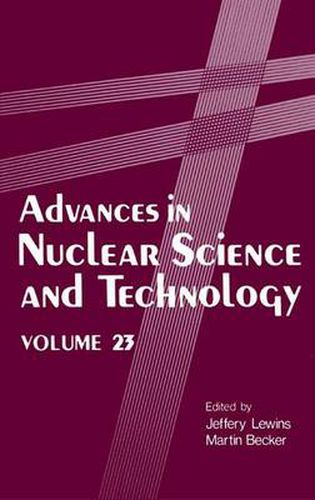Readings Newsletter
Become a Readings Member to make your shopping experience even easier.
Sign in or sign up for free!
You’re not far away from qualifying for FREE standard shipping within Australia
You’ve qualified for FREE standard shipping within Australia
The cart is loading…






This title is printed to order. This book may have been self-published. If so, we cannot guarantee the quality of the content. In the main most books will have gone through the editing process however some may not. We therefore suggest that you be aware of this before ordering this book. If in doubt check either the author or publisher’s details as we are unable to accept any returns unless they are faulty. Please contact us if you have any questions.
The editors have pleasure in presenting this volume of our review series. We have specialised in three areas: perturbation Monte Carlo, non-linear kinetics and the transfer of radioactive fluids in rocks. These contributions are linked, however, in the demands for optimising complex systems that are a feature of the scale of nuclear power production. Kuniharu Kishida’s account of Japanese thinking in the application of modern non-linear theory to reactor kinetics and control comes at a time when the community of control scholars is seeking how to apply the new ideas that have led to the prominence of chaos theory to our field. Pr- lems of maintenance in power reactors are as severe as ever and must be solved for credibility to characterise any new program. As much as 30% of unanticipated down-time, for example, is due to the failure of motor op- ated valves. We need a theory to provide for preventive maintenance. This in turn depends heavily on on-line monitoring to anticipate failure as well as expert systems to schedule preventive treatment. Noise theory with its promise of on-line interpretation of information from inchoate breakdown is the key. It is all too likely that the need to deal with major departures makes a non-linear theory of noise essential. We can be grateful that P- fessor Kishida has provided us with such a consistent account.
$9.00 standard shipping within Australia
FREE standard shipping within Australia for orders over $100.00
Express & International shipping calculated at checkout
This title is printed to order. This book may have been self-published. If so, we cannot guarantee the quality of the content. In the main most books will have gone through the editing process however some may not. We therefore suggest that you be aware of this before ordering this book. If in doubt check either the author or publisher’s details as we are unable to accept any returns unless they are faulty. Please contact us if you have any questions.
The editors have pleasure in presenting this volume of our review series. We have specialised in three areas: perturbation Monte Carlo, non-linear kinetics and the transfer of radioactive fluids in rocks. These contributions are linked, however, in the demands for optimising complex systems that are a feature of the scale of nuclear power production. Kuniharu Kishida’s account of Japanese thinking in the application of modern non-linear theory to reactor kinetics and control comes at a time when the community of control scholars is seeking how to apply the new ideas that have led to the prominence of chaos theory to our field. Pr- lems of maintenance in power reactors are as severe as ever and must be solved for credibility to characterise any new program. As much as 30% of unanticipated down-time, for example, is due to the failure of motor op- ated valves. We need a theory to provide for preventive maintenance. This in turn depends heavily on on-line monitoring to anticipate failure as well as expert systems to schedule preventive treatment. Noise theory with its promise of on-line interpretation of information from inchoate breakdown is the key. It is all too likely that the need to deal with major departures makes a non-linear theory of noise essential. We can be grateful that P- fessor Kishida has provided us with such a consistent account.